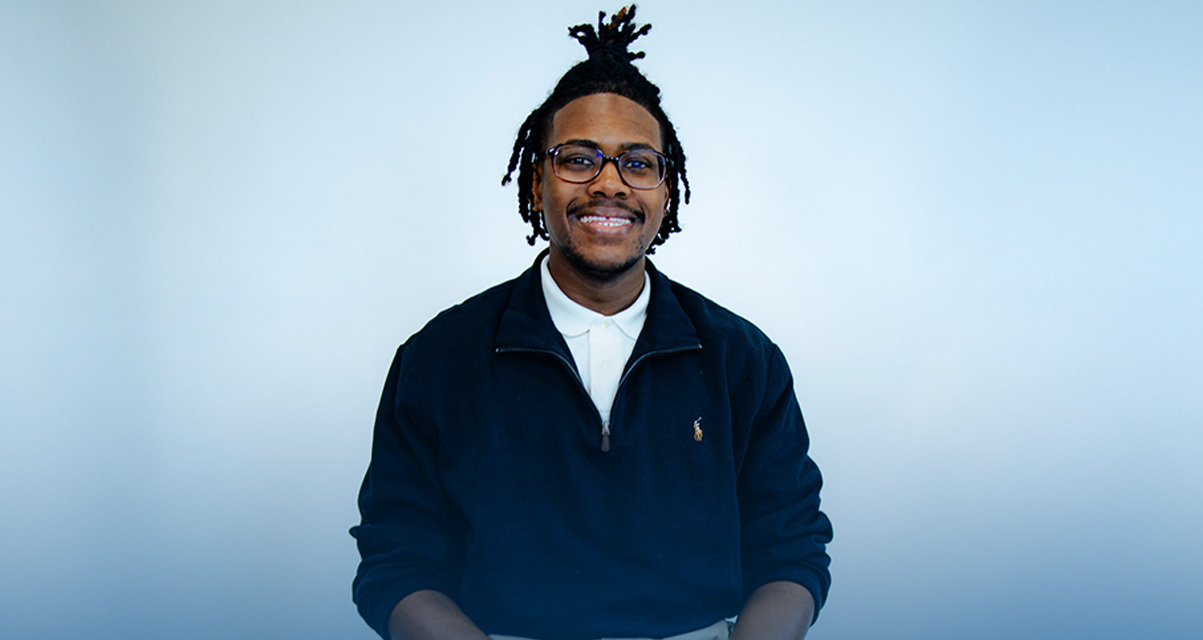Coding Excellence and Integrity: Lessons From Jason Asyone ’25’s Computer Science Internship with NUWC
Have you ever gotten to go inside a naval submarine for work? Jason Asonye ’25 (computer science) got the professional opportunity of a lifetime last summer when he interned for a Naval Undersea Warfare Center (NUWC) of the U.S. Navy. Each day at work he was surrounded by some of the most brilliant minds in the country. Some were there to serve their nation by building the best submarine technology. Others were there to develop their intellect and careers, discovering bigger and better ways to maximize efficiency and innovation. For Asonye, the job was a calling—to combine his skills and his faith to be a light in the world of technology.
Computer Science in Naval Subs
The NUWC is part of the U.S. Naval Sea Systems Command. This division acts as the Navy’s Innovation Engine, employing over 27,000 of the best scientists, engineers, researchers and technicians to come up with innovative, cost-effective technical solutions for surface and undersea naval defense.
Asonye spent the majority of his internship working on a submarine simulation project at NUWC’s Newport, RI, base. Because submarines are expensive and difficult to maneuver, the Navy spends a lot of time training its soldiers in simulations, so the likelihood of a costly mistake goes down when the soldiers finally step into the real thing.
Asonye led the production of code for the backend for the simulation, while other team members tackled different parts of the project. One of his specific tasks was designing and implementing the architecture of a subsystem enhancement aimed at tracking and analyzing accuracy for the naval submarine trainer. This meant the coding had to make the simulation as accurate as possible.
Several times during the internship, Asonye and his colleagues got to watch the simulations get tested to ensure they were making good progress. “It helped that we had some people from the best military special forces there as well,” Asonye said. “They had experience being in submarines. So, they would test the simulation for us and say, ‘Oh yeah, the Navy would be able to use this, or ‘No, it needs work.’”
Innovating Naval Defenses
In the computer science world, technology is constantly changing. Since the NUWC is the Navy’s innovation engine, the rapid rate at which Asonye’s projects kept developing was a challenge unlike any other. Fortunately, he had his education from Gordon to draw upon.
“I would say that Gordon prepared me by helping me learn how to learn,” Asonye said. “The computer science course at Gordon is pretty challenging, but it’s through those challenges that I was able to gain problem-solving skills. So, when I met with an issue, I didn’t just give up and go ask for help, but I tried to use some of the techniques and tricks I learned at Gordon and apply them to the problem.”
Asonye had to constantly think outside the box. One task required him to use an application program interface (API). APIs help coders access information from databases that house great quantities of information. At first the API Asonye was using would only collect a little information at a time, which slowed down the process of improving the submarine simulation code.
Asonye saw how the inefficiency was hurting his team and resolved to find a solution. He managed to figure out an algorithm to fix the API and get more information with each query more quickly—so much more that it was a 99 percent improvement on the speed of retrieval.
Integrity and Quality Work
While the internship was eye-opening for Asonye in many ways, the greatest thing he learned was how much Christians are needed in the world of computer science and technology. “Dr. Tuck talks in class about how a lot of people are very successful in this industry. They have a bunch of money, so they think they don’t need Jesus. If we as Christians can bring the news of Jesus to them and show through our lives that there’s a different way to live, we’re in a sense going into the mission field while also using the talents God has given us,” he said.
Asonye quickly realized at his internship that in order for people to listen to him, he had to produce excellent work and have integrity. Asonye worked hard to ensure his accomplishments and character were clear to his colleagues, and he was able to share the gospel with several of them over the course of his internship.
No matter what happens with his career, he plans to keep embodying these values––faith and hard work––and keep being a light to the computer science industry. “Those are the two things I will focus on. If I’m excelling in my work and proving myself trustworthy, people are going to want to hear what I have to say,” he said.
 The Bell
The Bell